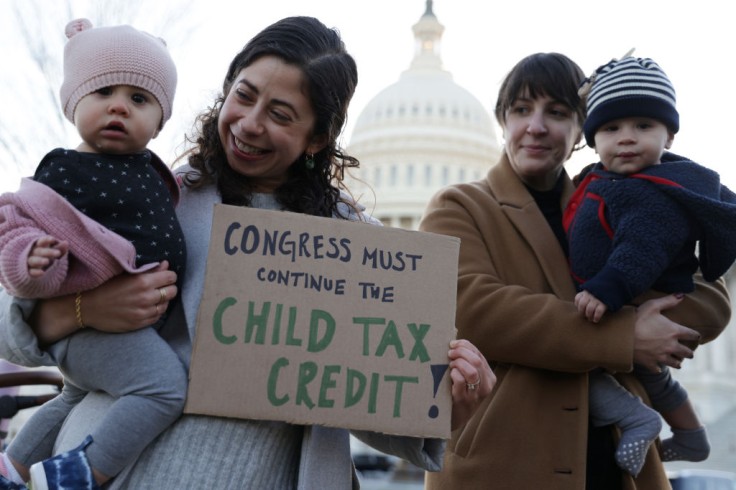
Tax season has officially ended Monday, April 18, 2022, but the Internal Revenue Service (IRS) said some taxpayers may still file their tax declaration, including their child tax credit claims, for the recent fiscal year until 2025.
Per the IRS, taxpayers who do not owe the government any taxes or non-filers who have not yet filed for child tax credit claims may still submit their tax returns without getting any penalty for late filing. Parents may still file a claim to get the expanded child tax credit of $3,600 per child. The IRS also said that Puerto Rico taxpayers might also claim their child tax credit for the first time.
In 2021, eligible taxpayers who did not opt out of the monthly enhanced child tax credit payments disbursed between July and December should have already received their benefits. However, these payments, amounting to $1,800, were only half of the full amount of $3,600 that parents could claim. The remaining claim was supposed to be done when they filed for their recent tax returns.
However, not all taxpayers chose to receive the monthly enhanced child tax credit because they didn't earn enough to file any taxes. Some families, who have never filed their tax returns and are known as non-filers, never got to sign up for the child tax credit claims as well. These individuals may now follow up on the payments by submitting their records to the IRS.
Check out the #IRS special tips for the advance #ChildTaxCredit and filing your 2021 tax return. See: https://t.co/XwD6bHqbx5
— IRSnews (@IRSnews) April 17, 2022
*Thank you for allowing us to share your artwork, Layla* pic.twitter.com/stQQ7ETlHC
No Penalty for Refunds
Regardless of their status as a taxpayer or non-filer, the only way to get tax refunds is to file with the IRS. The agency said that refunds do not incur any penalties despite the end of the tax season. However, there is a three-year time limit to collect the refunds, thus the 2025 deadline. Nina Olson of the Center for Taxpayer Rights advises parents not to wait too long to get their refunds.
"Even if you had a refund from one year that you could apply to another [year when you owe taxes], if you wait too long to file that return, you won't have that refund to apply to the back-tax debt," she told CBS News.
Subsequently, parents may also file for even larger refunds on top of the child tax credit claims.
- The Child and Dependent Care Credit allows parents to receive $3,600 per child or older dependent they need to look after.
- The Earned Income Tax Credit, on the other hand, allows for families with low to moderate-income to claim $1,502 to $6,728, depending on their declared taxes.
- The Economic Impact Payment provides $1,400 for families with a new member in their household for 2021.
If you had a baby in 2021, you may not have received the third Economic Impact Payment. You may be eligible to get this money now by claiming the Recovery Rebate Credit on your #IRS tax return: https://t.co/x73kjrPBwj pic.twitter.com/YFsdMcfG4R
— IRSnews (@IRSnews) April 17, 2022
Parents may check the Free File section on the IRS portal to complete the process of claiming refunds. This section has all the necessary forms and a guided tax preparation form, which will be of great help to first-time filers. The Free File service will be accessible until Oct. 17, 2022.
Late Filers Eligible for No Penalties
Meanwhile, the IRS also announced that some individuals would automatically qualify for no penalties or no interest if they file their income tax beyond the April 18 deadline. An extension of 180 days will apply to members of the military service who are in a combat zone, including the support personnel of the Armed Forces.
Taxpayers who are currently outside of the U.S., but are not in the military, will also get at least two months of extension. Disaster victims are also given leeway to file late without penalties.
Meanwhile, individuals who do not have refunds, like the child tax credit claims, but owe the government money after reconciling their tax returns for the recent fiscal year have options to settle their payment. The IRS offers an installment agreement or could agree to a compromise. Erin Collins of the National Taxpayer Advocate told CNBC that asking for an installment or compromise is a quick and easy process and could be done online or through the phone.
Related Article: Last Chance of Getting $1,400 Stimulus Check! Over 600,00 to Receive Benefits, What to Do If Deadline Has Lapsed?